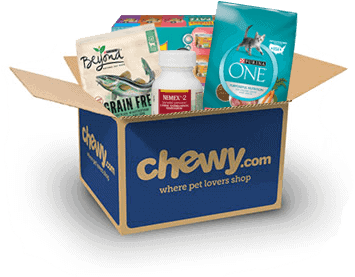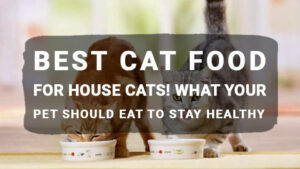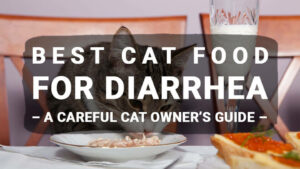Cats are notorious for being picky eaters – but that doesn’t mean they won’t jump up on the counter and help themselves to something that looks or smells interesting to them! Many foods, though, can be toxic to them because they have small bodies and a very unique metabolism. Many foods that are safe for humans (and dogs) CANNOT be tolerated by cats.
So, is the tomato one of those foods? I wanted to find out for sure because I wouldn’t want to give my cat something that could cause her discomfort, or worse! I caught her on the counter a few weeks ago sniffing some tomatoes that I had just picked from my garden. She was definitely interested, but I never give my pets ANYTHING unless I know it’s safe. Thus started my search for the answer!
Varieties of Tomatoes
Did you know that a tomato is actually a fruit? There are more than 10,000 varieties of tomatoes that are cultivated worldwide? That’s a lot of tomatoes! They come in various shapes, sizes and colors. Some of the most popular in North America are the cherry, heirloom, beefsteak, grape and plum varieties. They are easy to grow at home and taste great in just about any dish. Cats don’t seem to be too picky about which variety they eat, if given a tomato they will chow down!
Are Tomatoes Bad for Cats?
So, are tomatoes bad for cats or are they safe? The answer is…. Yes – and no. There seems to be a lot of conflicting information, among both nutritionists and veterinarians in regards to what nutrients and toxins are contained in a tomato.
Tomatoes contain tomatine, and to a lesser degree, solanine, which are both considered toxins. Tomatoes plants are related the very toxic plant Nightshade, which is deadly for cats. They produce toxic alkaloids as well as nicotine.
As tomatoes ripen, the amount of tomatine gets reduced significantly. Cooking the tomatoes will also lessen the toxins.
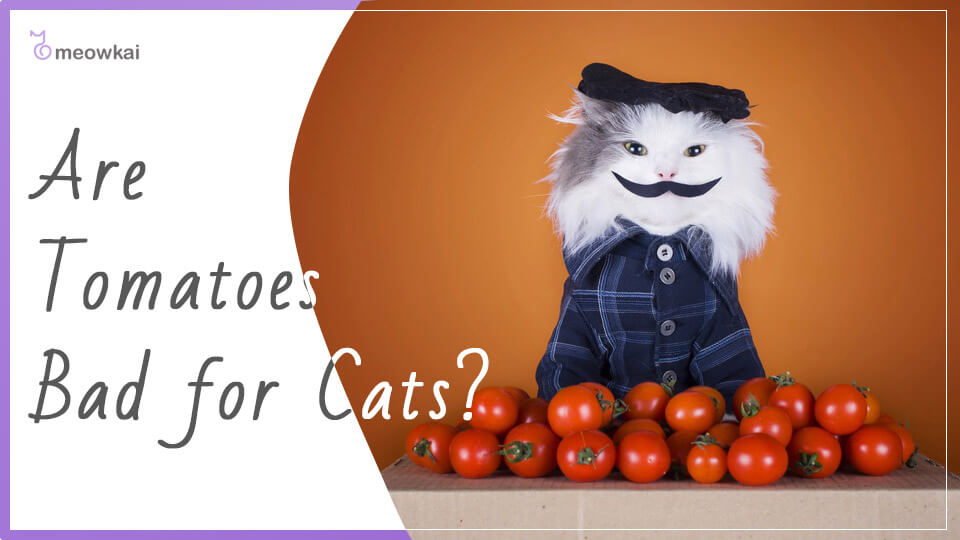
Many vets agree that if the tomatoes are of a red variety and are fully ripe, they are safe for cats to eat. However, NEVER give a cat the leaves or stems of the plant, as these contain high levels of toxins and can extreme gastrointestinal discomfort, or even death. Never give your cat any other variety of tomato, except for red.
There are also vets that concur that it’s better to be safe than sorry, and even a small amount of tomatine and solanine can be deadly. It’s important to remember here that your cat’s body is much smaller than yours (and that of a dog’s) and a little bit of poison can go a long way.
So, the answer is clear to me: I won’t take a chance in giving my cat a tomato, no matter what the variety, and regardless of whether it’s cooked or not.
Tomatoes in Cat Food?
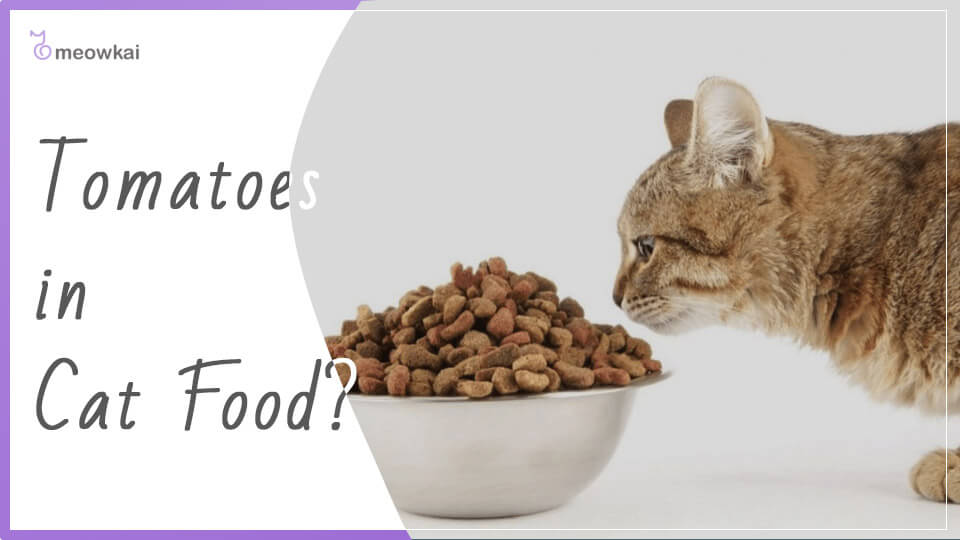
If you look carefully at the ingredients list on your cat food package, it may list tomatoes. Apparently, cat food manufacturers don’t think there is a problem with including this as an ingredient. It’s hard to say the best cat food and how much they include or what variety they’ve used. It could be that it is so processed that all toxins as well as nutrients have been diminished to a minimum!
It’s always best to read the ingredients label carefully. If your budget allows, always buy organic and high-quality food for your cat. It will help prevent serious digestion issues as they age, and will keep them active and healthy longer. It’s also a good idea to add variety by giving your cat a mix of dry and wet food.
Other plants/greens to avoid
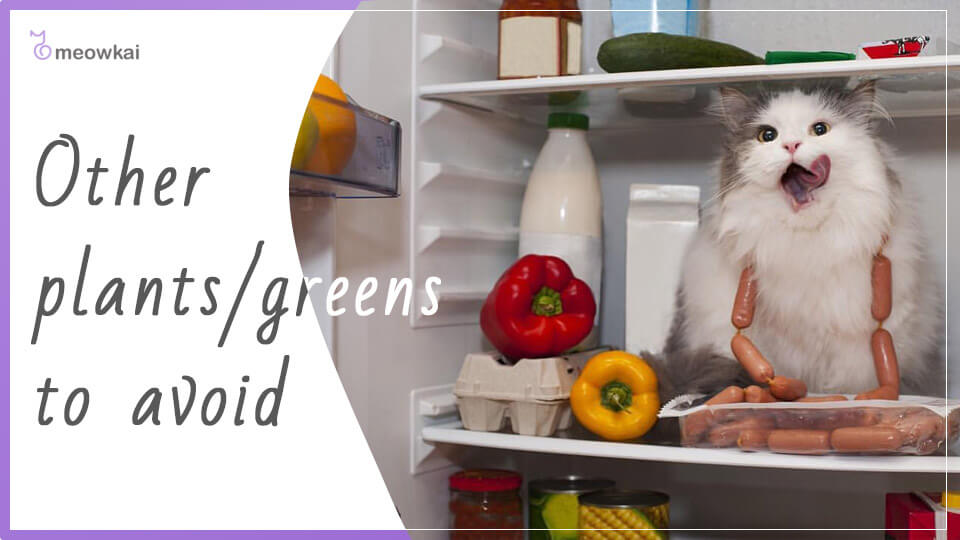
If your budget allows, always buy organic and high-quality food for your cat. It will help prevent serious digestion issues as they age, and will keep them active and healthy longer.
Along with tomatoes and tomato leaves, vines and greens, there are other plants and foods that they should avoid. Among the most toxic for cats is:
- Poinsettia plants
- Onion powder
- Garlic
- Chives
- Canned tuna (they’re meant for humans and should not be given to cats no matter how much they beg)
- Dairy products (did you know many cats are lactose-intolerant?)
- Alcohol (just a couple of teaspoons could put fluffy into a coma)
- Grapes and raisins (can cause kidney failure)
- Caffeine
This is by no means an exhaustive list, but you get the hint. It’s best to give your cat only food that comes from a pet store, or the pet food section of your favorite grocery store. If you have doubts or questions, ask your vet for clarification. You can also ask about the cat food for diarrhea in case your pet experienced to have one.
So don’t worry: if your cat has eaten a ripened red tomato now and again, it probably won’t do them any harm. But make sure they stay away from other varieties and ensure the tomatoes are fully ripe if you do give them some. Keep the greens, leaves, and vines away from them at all times! If you want your cat to stay healthy and active, give them high-quality food that was meant for them.
When can kittens eat adult cat food? Read our guide
If you have any questions or would like to share your reviews, then comment down below. I would love to hear what you have to think.

